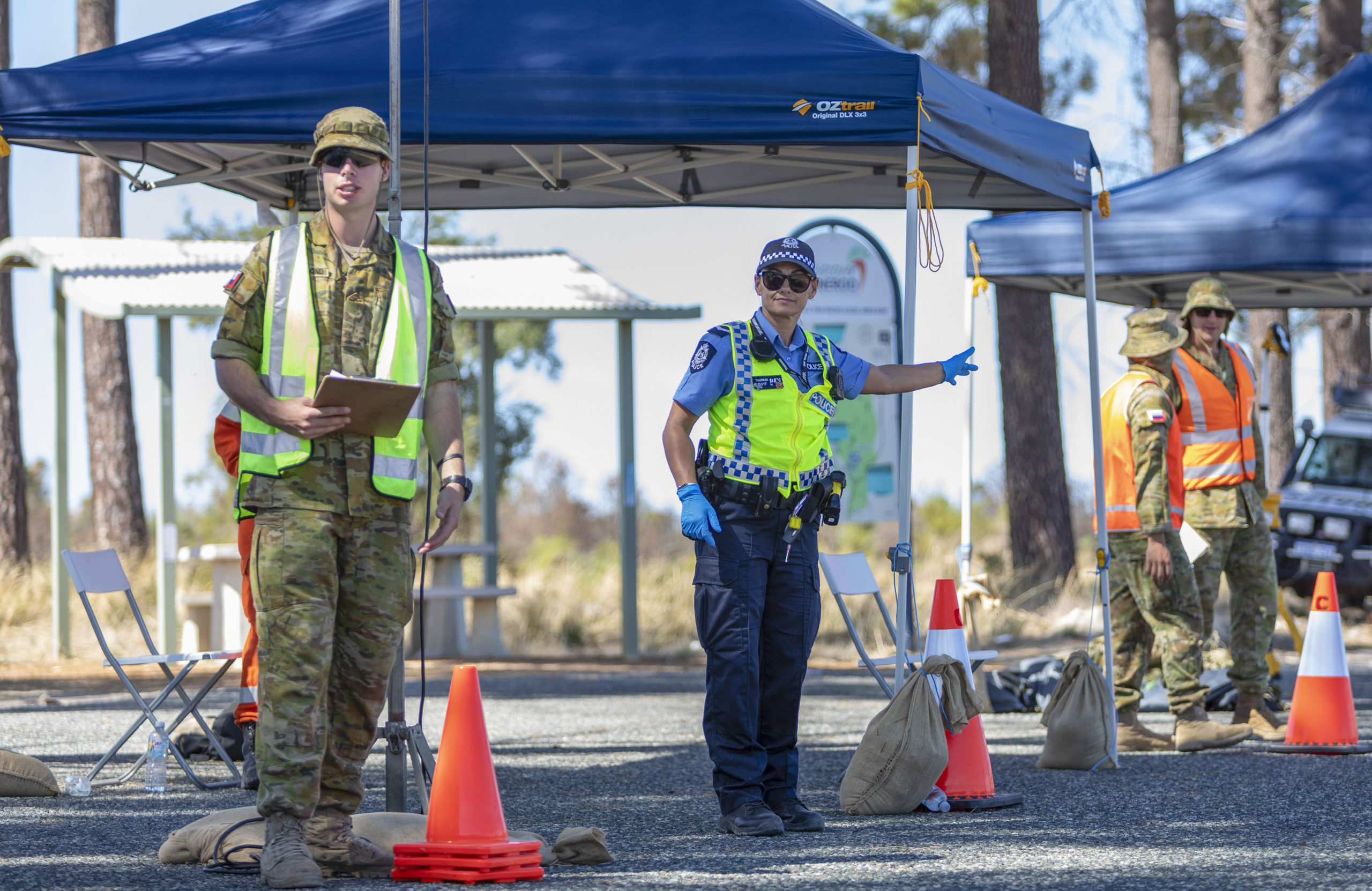How officer training prepared me for Operation COVID-19 Assist.
If you’d told a newly commissioned Lieutenant (LT) what they could expect as an Infantry officer, leading a team of soldiers in a civilian call centre would not have been the first thing to come to mind. The new LT might wonder – ‘how has my training prepared me for that?’
My role as a Liaison Officer within a local government organisation as part of the Australian Defence Force’s response to COVID-19 has been as challenging as it has been rewarding. And since commissioning just two months ago, the only experience I had to draw upon to aide me in the operation has been my time as an Officer Cadet.
So, how has our training prepared us for the challenges of Operation COVID-19 Assist (OP C-19A)? I would like to offer a few observations that come to mind.
1. Concentration of Force
A key Principle of War is the concentration of force. As an Officer Cadet, I primarily understood this in the context of conventional war fighting – to mass kinetic effects in order to overwhelm an adversary and win the fight. But in its most basic application, it can applied to any scenario.
As a Liaison Officer, one of the most important parts of my work on OP C-19A is ensuring both the military and civilian staff you work with are ‘singing off the same song sheet’. I’m able to contribute to our key partners by sharing information, contacts and knowledge.
In our case management and contact tracing call centre, we monitor each of the cases of COVID-19 in the area as well as their close contacts. We’ve had to train and allocate staff in the call centre to meet peak demand times and rapid changes from an influx of cases. Doing so means we’re concentrating our efforts to a given task at any time, but are also able to change direction should the current situation shift.
2. Flexibility
Perhaps one of the most obvious traits that one requires in a viral pandemic is flexibility. In order to be effective, decision-making must move faster than the spread of the virus. This requires an officer to be flexible to a change in tasking and to imbue that same flexibility throughout the force.
You may take weeks to develop a series of contingency plans, only for a new outbreak or change in policy to dramatically change your strategy. Your planning therefore needs to incorporate a wide enough left and right of arc to be able to handle any situation. Whether it’s a war or a pandemic, no plan survives contact with the enemy.
In training, we were taught to develop several different Courses Of Action (COA) when conducting the Individual Military Appreciation Process (IMAP). While you’d ultimately choose one COA as your primary plan, you’d flesh out your other options to a point where each could be drawn upon should there be a change in the battlespace. The IMAP process teaches you to readily adapt to meet new circumstances – to be agile, responsive and resilient.
3. Sustainability
Throughout officer training, you’re taught to conserve ammunition, ensuring you have enough equipment to continue the mission. If need be, you change your formation or redistribute stores to ensure the entire force element is able to continue the fight.
The mission doesn’t just finish at the end of a single firefight. You could have to go through multiple engagements before you reach the objective and complete the mission.
Ensuring sustainability has been a key part of OP C-19A, as we’re expected to be in this state for several more months. It’s a long operation, and the virus won’t disappear overnight.
As the spread of COVID-19 changed, we too needed to adjust our work tempo to ensure our soldiers could last the duration of the operation. This was especially true for soldiers away from their posting location who were separated from their families for prolonged periods of time. Despite social distancing limitations and the high tempo of OP C-19A, we still found ways to connect our soldiers with their families, enjoy take away meals in small groups (1.5m apart), as well as encouraging runs and pack marches around the base.
On the surface, the role of an Infantry Platoon Commander does not seem congruent to that of a Liaison Officer within a government department. However, our military training has well prepared us to meet virtually any demand placed upon us, and I am confident that we’ll overcome the challenges yet to come.
About the author: Lieutenant Brody Hannan is posted to 1st/19th Royal New South Wales Regiment, and currently serves as an Australian Defence Force Liaison Officer in OP COVID-19 ASSIST 2020.
Cover Image Credit: Defence Image Gallery

